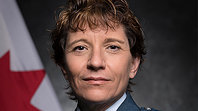OceanBonfire
Sr. Member
- Reaction score
- 392
- Points
- 1,080
The main points:

 www.canada.ca
www.canada.ca
- Canadian Armed Forces Dress Instructions Update
- Inclusive ranks in French
- Post-natal care and women’s health
- New Compassionate Leave Policy
- Duty with Honour
- Training Needs Assessment
- Employment Equity
- Promotion and Selection

Message from the Acting Chief of Military Personnel on Diversity, Inclusion, and Culture Change Short-Term Initiatives
Today I want to highlight some of the great work we are leading within CMP and Military Personnel Command to help us realize this vision.




